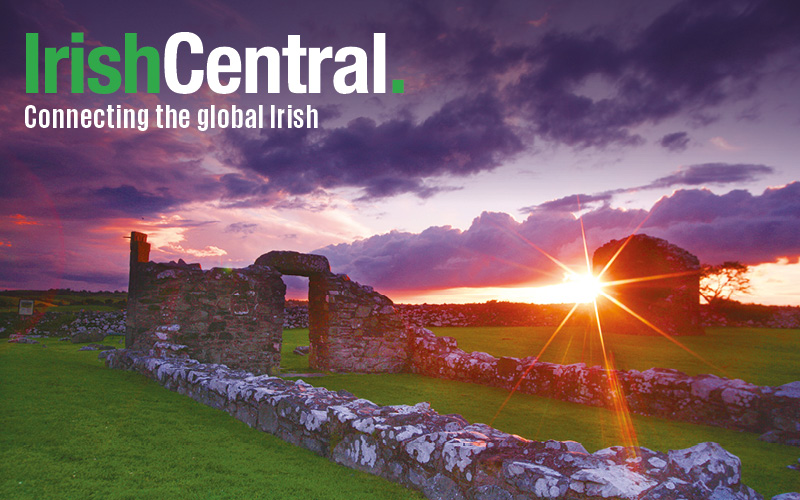THERE are few Irish Americans out there who have at some point not been drawn into an argument about "Danny Boy," a/k/a "The Londonderry Air." Usually it's at 3 a.m. in the morning, after a screeching rendition of the Irish American anthem after a few pints too many. Some curse it to hell and wish it were permanently barred. Others can't get enough of it.
The furor over the song has reached new heights this St. Patrick's Day after it was banned by a New York publican because he claimed it was too sentimental and more suitable for a funeral, a story that got picked up all over the world.
We disagree with the ban. The old song has a magnificent history that involves many of the great epochal events of Irish history.
The tune was first collected in 1851 by Jane Ross of Limavady, Co. Derry. She heard it from a blind piper named Jimmy McCurry.
It is said to have originally come from a tune named "O Cahan's Lament" which bemoaned the fact that Ross's ancestors had taken their land in the plantation of Ulster in 1609.
A blind fiddler, Denis O'Hampsey, had taken O Cahan's lament and made it his own during his lifetime. In 1792, as a very old man, he had been approached by the great folklorist and song collector Edward Bunting and asked to play the tune for him.
Bunting published the air in his 1796 songbook of lost Irish songs.
The air immediately became very popular, but despite efforts by some of the finest lyricists in Britain and Ireland to pen words to match it they never succeeded.
That was until the American sister-in-law of an English songwriter, Margaret Weatherly, heard the air as played by Irish gold miners, emigrants from the Limavady area playing it in Ouray, Colorado in 1912. She immediately sent the tune to her brother, Frederick Weatherly, a well-known songwriter and lawyer in London.
By coincidence, Weatherly had been seeking music for lyrics of a song he had written called "Danny Boy," and thus a legend was created. Soon the song became an anthem for Irish everywhere.
Weatherly wanted it that way. In his autobiography Piano and Gown (1926) he expressed the hope that "Sinn Feiners and Ulstermen alike" would sing his song.
That has certainly proven to be the case. "Danny Boy" was used as Northern Ireland's anthem when they took part in the British Commonwealth games, for instance, and no Irish American get together is complete without a rendition.
It went far beyond its Irish provenance, however. Soon after it appeared it became the American Idol of its day.
"Of all the national tunes which have been rescued from oblivion ... none has achieved such striking popularity as the old Irish tune known as the 'Londonderry Air' ... this very beautiful tune seems to be taking such an extraordinary hold upon the people." So said Henry Coleman in the Musical Times.
So "Danny Boy" has a noble history and lineage. It is not some Vaudeville tune like so many Irish American tunes, pressed into service to feed the romantic notions of misty eyed emigrants.
The original air dates back to the Plantation of Ulster, takes in the great emigration after the Famine and even includes a plea from its lyricist that Irishmen of all stripes, Sinn Fein and Ulstermen, would warm to it.
So it is hardly politic to wish it banned on St. Patrick's Day. A better candidate for termination might be "Who Put the Chowder in Mrs. Murphy Overalls," or one of those dreadful Tin Pan Alley creations.
So give yourself a treat this St. Patrick's Day. Go to You Tube and type in Frank Patterson and "Danny Boy," and hear Ireland's late tenor pay tribute to the greatest of all Irish songs. Happy St. Patrick's Day!




Comments